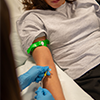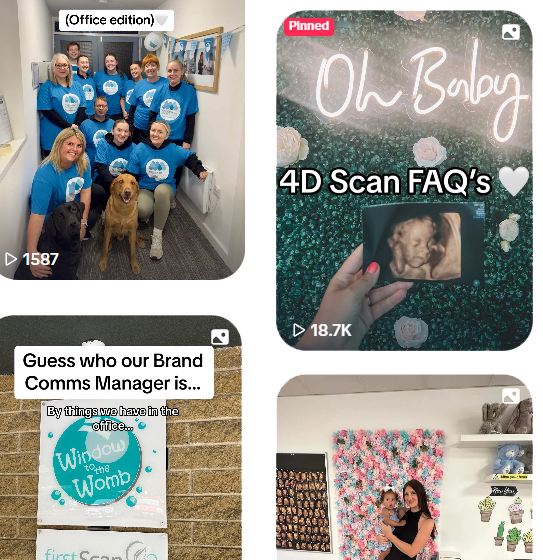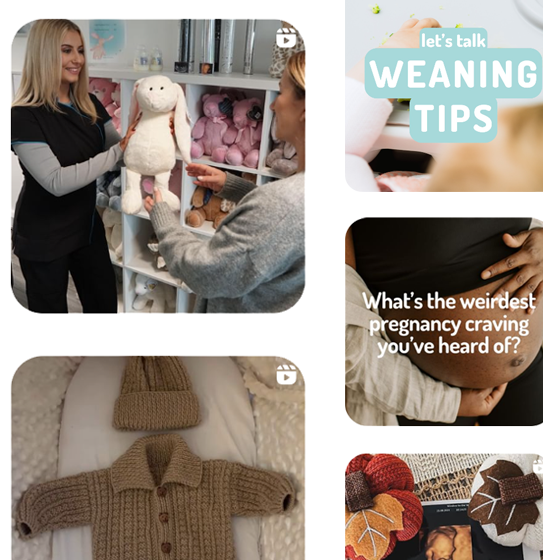Welcoming a new baby is life-changing – but for many new parents, it also brings emotional challenges that are difficult to talk about. If you’re struggling to feel like yourself again, know this: you are not alone, and help is available.
In the UK, it’s estimated that 1 in 5 women and 1 in 10 men experience a mental health problem during the perinatal period (pregnancy and the first year after birth). This blog offers trusted postnatal mental health resources to support your wellbeing and help you feel understood, connected, and cared for.
Recognising Postnatal Mental Health Issues
Feeling exhausted, emotional, or anxious in the early weeks is common – but if these feelings persist, or interfere with your ability to cope, you may be experiencing:
- Postnatal depression
- Postnatal anxiety
- Birth trauma or PTSD
- Postnatal OCD
- Postnatal psychosis (a rare but serious condition requiring urgent help)
Signs to look out for:
- Constant low mood, sadness or hopelessness
- Panic attacks or obsessive thoughts
- Difficulty bonding with your baby
- Anger, irritability, or feeling numb
- Thoughts of harming yourself or your baby (seek immediate support)
Helplines and Urgent Support
📞 NHS Urgent Help
If you’re in crisis or need urgent mental health support:
- Call 111 and choose the mental health option
- Or contact your GP, midwife, or health visitor
💬 Samaritans (24/7)
- Call 116 123 for free from any phone
- Or visit www.samaritans.org
💡 Shout (Crisis Text Line)
- Text SHOUT to 85258 for free, confidential mental health support
💕 Emergency Services
If you or someone else is in immediate danger, call 999 or go to your nearest A&E.
Trusted Postnatal Support Services in the UK
🌿 PANDAS Foundation
- Call 0808 1961 776 (daily, 11am–10pm)
- Offers support to anyone affected by pre/postnatal mental illness
- Visit: www.pandasfoundation.org.uk
🤝 Mind – Mental Health Charity
- Offers advice, local services, and support groups
- Visit: www.mind.org.uk
👶 Tommy’s
- Offers information on mental health in pregnancy and after birth
- Visit: www.tommys.org
🧠 Maternal Mental Health Alliance
- A network of over 100 organisations working together to improve perinatal mental health care in the UK
- Visit: www.maternalmentalhealthalliance.org
Talking Therapies and Counselling
In many areas of the UK, you can self-refer for free NHS talking therapies (also called IAPT services).
- Find your local service via the NHS website:
www.nhs.uk/talk
You can also speak to your GP for a referral to a perinatal mental health team, especially if your symptoms are more severe or complex.
Peer Support & Community Groups
Connecting with others who understand what you’re going through can be a lifeline. Look for:
- Local postnatal support groups through health visitors or children’s centres
- NCT (National Childbirth Trust) groups for postnatal meetups
- Online forums such as Mumsnet, Netmums, and Facebook parenting groups
Final Thoughts: Be Kind to Yourself
Your mental health matters just as much as your baby’s wellbeing. Seeking help is not a sign of weakness – it’s a sign of strength. With the right support, recovery is possible, and you will feel like yourself again.
You’re not alone – and you don’t have to face this without help.













 Packages & Prices
Packages & Prices  Important Info & Policies
Important Info & Policies  Your Scan
Your Scan